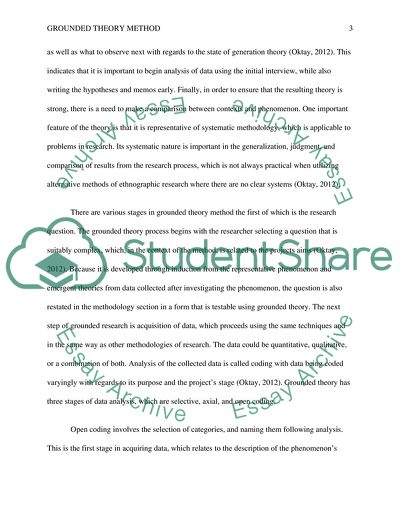Cite this document
(Grounded Theory Method Coursework Example | Topics and Well Written Essays - 1500 words, n.d.)
Grounded Theory Method Coursework Example | Topics and Well Written Essays - 1500 words. https://studentshare.org/social-science/1806452-grounded-theory
Grounded Theory Method Coursework Example | Topics and Well Written Essays - 1500 words. https://studentshare.org/social-science/1806452-grounded-theory
(Grounded Theory Method Coursework Example | Topics and Well Written Essays - 1500 Words)
Grounded Theory Method Coursework Example | Topics and Well Written Essays - 1500 Words. https://studentshare.org/social-science/1806452-grounded-theory.
Grounded Theory Method Coursework Example | Topics and Well Written Essays - 1500 Words. https://studentshare.org/social-science/1806452-grounded-theory.
“Grounded Theory Method Coursework Example | Topics and Well Written Essays - 1500 Words”. https://studentshare.org/social-science/1806452-grounded-theory.


